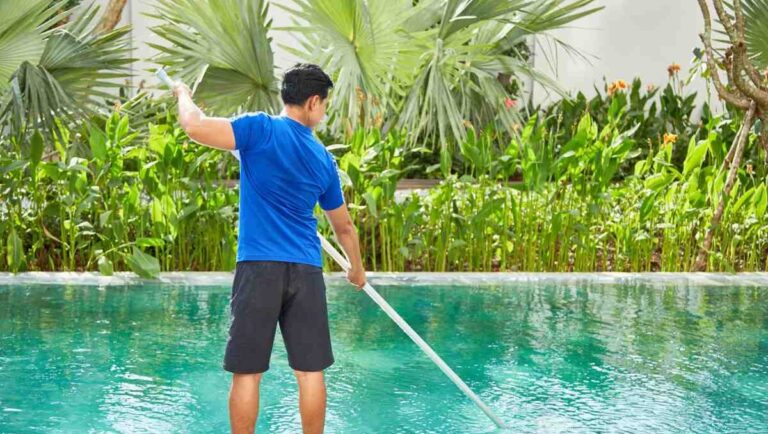
A well-maintained pool is a source of joy, relaxation, and lasting value for any home. But it takes more than just occasionally adjusting the chlorine levels and skimming leaves to keep your pool in optimal condition. It takes consistency, smart habits, and a bit of expert knowledge to avoid costly problems down the line. Thankfully, you can take advantage of safe swimming conditions, effective systems, and crystal-clear water throughout the year with the correct strategy. For homeowners dealing with persistent maintenance issues, scheduling a professional inspection through a trusted pool repair Atlanta service can ensure your pool systems stay in top condition year-round. Here are expert tips to help you maintain a problem-free pool.
- Stay Consistent With Water Testing
Regularly testing your pool water is one of the most critical steps in preventing significant issues. Imbalanced water can lead to algae growth, equipment damage, and even skin and eye irritation for swimmers. Experts recommend testing your water at least once a week, and more frequently during peak usage or after heavy rainfall.
To keep an eye on important parameters like PH, chlorine, total alkalinity, and calcium hardness, use a trustworthy pool test kit or strips. Keeping these within ideal ranges ensures water quality and protects your pool’s surfaces and components.
- Keep The Filters Clean
Your pool filter plays a vital role in maintaining water clarity by trapping dirt, oils, and debris. Over time, clogged filters reduce water circulation, which can lead to murky water and strain on your pump. Clean your filter system according to the manufacturer’s recommendations—this might be once a week for skimmer baskets, monthly for cartridge filters, or seasonally for sand filters.
A clean filter keeps your pool more effective and eco-friendly by lowering energy consumption and improving water quality.
- Balance Chemical Levels Correctly
Chemical imbalances are among the most common causes of pool problems. Maintaining the right levels of sanitizer (like chlorine), stabilizer (cyanuric acid), and PH is essential. If PH is too low, water becomes corrosive; too high, and scaling or cloudiness can occur.
Shock your pool periodically, especially after parties or heavy use, to eliminate contaminants and restore balance. Always follow label directions and add chemicals in the proper order and amounts.
- Brush And Vacuum Regularly
Even with good chemical balance and a functioning filter, your pool needs physical cleaning. Brushing the walls, steps, and corners helps prevent algae buildup and keeps surfaces looking new. Vacuuming removes fine debris that can settle at the bottom and escape filtration.
Depending on your pool’s location and exposure to wind, trees, or pets, brushing and vacuuming once a week, or more frequently, can prevent grime from turning into larger issues.
- Maintain Proper Water Levels
In an ideal scenario, the water level in your pool should remain consistent, with the skimmer opening approximately halfway up. While too little water runs the risk of damaging your pump, too much water can lower skimmer efficiency.
Keep an eye on water levels after rainstorms or heavy usage, and adjust as needed. Installing an automatic water leveler is a great long-term solution for busy homeowners.
- Inspect Equipment Regularly
Your pool pump, heater, chlorinator, and other components need periodic inspections. Check for leaks, wear, or strange sounds. Ignoring minor problems, such as a small leak or a corroded fitting, can lead to costly repairs.
Schedule professional inspections annually to ensure your systems are operating safely and efficiently. Emergency repairs are far more expensive than preventive care.
- Cover Your Pool When Not In Use
A pool cover may seem optional, but it’s a powerful tool for keeping your water clean and minimizing maintenance. It reduces evaporation, keeps out debris, and can even help retain heat. More importantly, it acts as a barrier against accidental contamination or safety risks.
Choose a high-quality, properly fitted cover to protect your pool when not in use, especially during long periods of inactivity or off-season.
Final Thoughts
Owning a pool doesn’t have to be overwhelming. By incorporating these expert maintenance tips into your routine, you can prevent common problems, reduce repair costs, and keep your pool safe and enjoyable all year round. A little consistency and attention to detail go a long way, because the best kind of pool is one that’s always ready for a swim.
